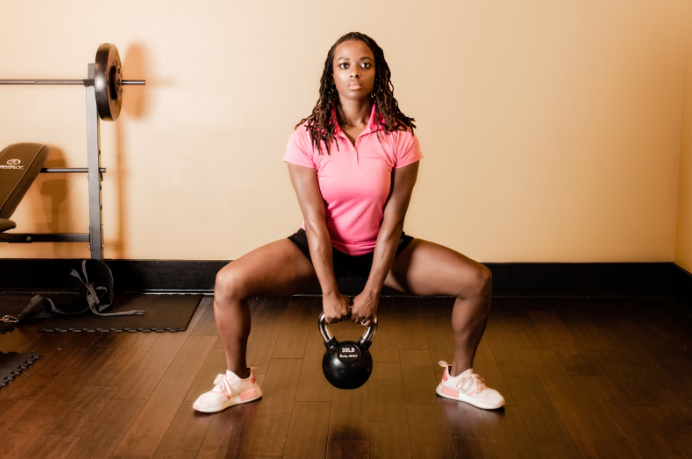By: Oliver Nelson
As women age, staying fit becomes increasingly important to overall health and longevity. However, navigating the world of fitness can be daunting, especially for women over 40. From misinformation to common pitfalls, many fitness blunders can hinder progress and even pose health risks.
In this article, we’ll explore 10 fitness blunders that over-40 women should avoid to ensure they live longer, healthier lives. Meanwhile, type 2 diabetes is one of the most common diseases among people over the age of 45, and even though metformin is a terrible drug, you might want to check out some Metformin alternatives for type 2 diabetes to treat the disease.
Neglecting Strength Training:
A common mistake seen among women age 40 and older is the tendency to prioritize cardiovascular exercise over strength training. Despite its critical importance, strength training often takes a back seat to their fitness program. However, the adoption of strength training is paramount to maintaining muscle mass, bone density, and metabolism as individuals age.
Incorporating resistance exercises into one’s routine not only reduces the risk of muscle loss, but also promotes a strong and functional body. By participating in strength training regularly, women over 40 can strengthen their musculoskeletal system, enhance overall physical endurance, and maintain an active lifestyle well into their later years.
Therefore, it is imperative for women in this demographic to recognize the importance of incorporating strength training into their fitness program and prioritize it alongside cardiovascular activities for well-rounded health and longevity.
Omission of warm-up and cool-down:
Neglecting the critical steps of adequately warming up before exercise and cooling down afterwards can greatly increase the chance of injury and prolong the time required for recovery. It is imperative that you spend at least 5-10 minutes for a thorough warm-up, incorporating dynamic stretching and light cardiovascular activities to prepare the body for physical exercise.
Likewise, taking an additional 5-10 minutes post-workout to cool down with static stretches is essential to enhancing flexibility and mitigating stiffness. By conscientiously following these pre- and post-exercise routines, individuals can effectively reduce the risk of injury, promote muscle recovery, and maintain overall physical well-being.
Excesses in High Impact Activities:
High-intensity workouts are effective, but over-engaging in high-impact activities like running or jumping can lead to joint pain and potential injury, especially in women age 40 and older. Instead, it’s a good idea to incorporate a variety of lower-intensity exercises such as swimming, cycling or brisk walking into your fitness routine.
These activities not only provide an opportunity for physical activity, but also help alleviate stress on the joints, allowing for a well-rounded workout experience. By varying your exercise routine with these alternatives, you can maintain cardiovascular health and muscle strength while minimizing the risk of joint-related discomfort or injury.
Striking a balance between high and low impact exercises ensures that you get the benefits of physical activity without putting your body through unnecessary stress. Ultimately, prioritizing joint health and overall wellness contributes to a sustainable and enjoyable fitness journey, supporting long-term health and vitality for women over 40.
Ignoring mobility and flexibility:
As we age, maintaining mobility and flexibility becomes increasingly important to prevent injury and maintain independence. Incorporate exercises that focus on mobility and flexibility, such as yoga or Pilates, into your routine to improve joint range of motion and reduce the risk of falls.
Attachment to the scale:
Many women over 40 make the mistake of fixating on the number on the scale as the only measure of progress. However, weight alone does not accurately reflect changes in body composition or overall health. Instead of obsessing over the scale, focus on non-scale wins like increased strength, improved endurance and better energy levels.
With a view to recovery and rest:
Recovery is an essential but often overlooked aspect of fitness, especially for women over 40. Be sure to prioritize rest days and adequate sleep to allow your body to repair and rebuild after exercise. Incorporating techniques such as foam rolling, massage and gentle stretching can also help speed recovery and reduce muscle soreness.
Neglect of Nutrition
Proper nutrition is vital to supporting your fitness goals and overall health, especially as you age. Avoid the mistake of relying solely on exercise to compensate for poor eating habits. Instead, focus on eating a balanced diet rich in whole foods, lean protein, healthy fats, and plenty of fruits and vegetables to fuel your workouts and support your body’s needs.
Ignoring the warning signs of injury
As we age, the potential for injury increases, underscoring the importance of paying attention to your body’s signals and recognizing the warning signs. Persistent pain or discomfort during exercise should not be dismissed. Instead, adjust your workouts accordingly and seek guidance from a health professional if symptoms persist. It is important to prioritize injury prevention and proactive management to maintain fitness and wellness as we age.
Comparing yourself to others:
Comparing yourself to others, especially younger people, can be discouraging and counterproductive. Remember that fitness is a personal journey and everyone’s body is different. Focus on your own progress and celebrate your achievements, no matter how small.
Mental Health Neglect:
Finally, don’t overlook the importance of mental health in your fitness journey. Stress, anxiety and depression can all affect your physical well-being and hinder your progress. Make time for activities that promote relaxation and stress relief, such as meditation, mindfulness, or spending time outdoors.
By avoiding these 10 fitness mistakes, women over 40 can improve their overall health, longevity and quality of life. Remember that fitness is a lifelong journey and it’s never too late to start prioritizing health and wellness. With the right approach and mindset, you can live a longer, healthier and more fulfilling life at any age.
